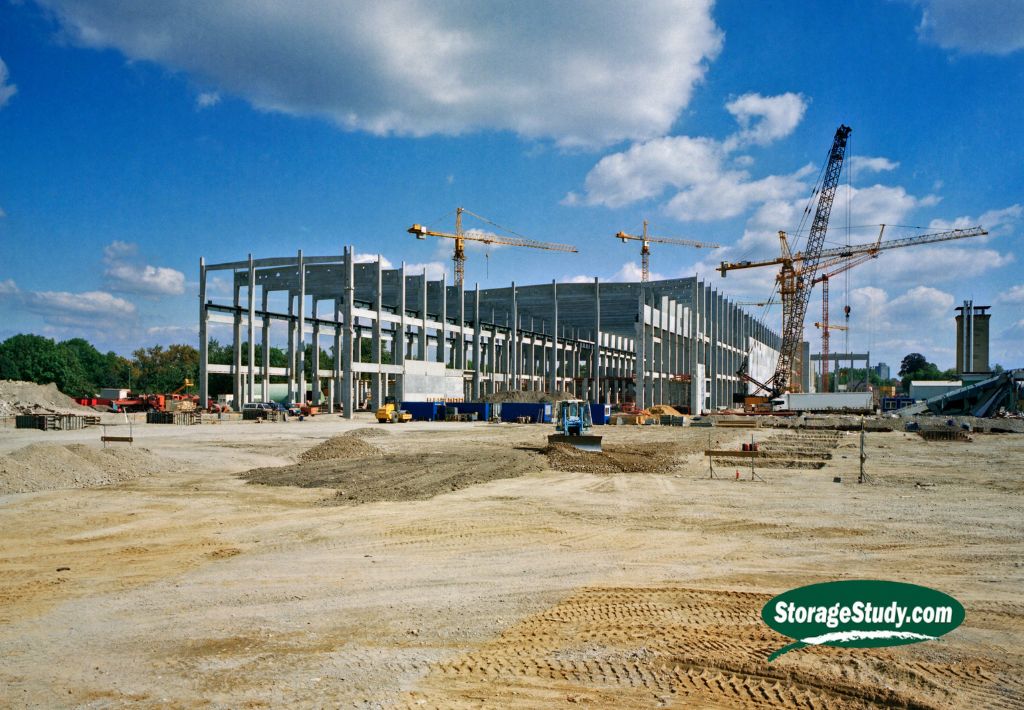How to Start a Self-Storage Business: A Comprehensive Guide For Beginners
If you’re wondering about how to start a self-storage business, I’ll tell you everything you need to know – but I’m gonna start with the hard truth that no one tells you, first.
You, your friends, and everyone else is sitting around thinking about residual income. And spending some money to build a self-storage facility in the hopes that the money just piles up is the dream.
Which can quickly turn into a nightmare if you don’t have a site, you don’t have the chops to wait three years until your profitable, and aren’t willing to roll up your sleeves and punch through big obstacles.
Because that’s what it takes.
Now, if you’re still here, good. You might be an ideal self-storage investor. And having owned and operated countless facilities, I’ll tell ya: Starting a self-storage business can be one of the smartest investments you’ll ever make.If you’re looking to dive into this industry, it’s essential to know how to start a self-storage business the right way. This guide will give you a clear path forward, with over 20 years of experience at the helm.
How to Start a Self-Storage Business: Laying the Foundation

Will your baby be ugly? Well. We’re probably the only self-storage consultants who are willing to tell you that and our ultrasounds are pretty darn accurate. If you’re going into self-storage, you need to know that not all projects are equal and certainly don’t look alike. One of the biggest mistakes new investors make is jumping into a project without fully understanding the market. That’s a recipe for wasted time and money.
Here’s another thing: top-tier self-storage consulting groups like ours can hand you the insights you need before anything else happens. So here’s a gut check – if you’re not ready to protect your investment with a self-storage feasibility study that costs anywhere from $6500 to $11K, then you might want to think about opening a Starbucks.
Still here?
Good. You might just be tough enough.
Here’s what’s next on the agenda.
Market Research and Your Self-Storage Feasibility Study
This is where you make or break your business. You’ve got to know the local market like the back of your hand. What’s the demand for self-storage? What are your competitors doing? Look beyond the surface; square footage per capita is an outdated metric. Instead, dig into local demographics, how much space is available, and what type of storage is needed. Don’t know what any of that means? Contact us when you’re ready. We’re here to help.
Now, before you spend a single dollar on construction, you need to get an industry-leading self-storage feasibility study. This isn’t just a box to check; it’s your business plan’s backbone. Think of it as an insurance policy. You wouldn’t just roll up to the roulette table and put $5M on red would you? You’d wanna learn a thing or two about what would improve your chances of success before potentially lighting all that money on fire. As such, we don’t offer cookie-cutter reports—what you need is critical market intel that can help you see if that silver ball is about to land on black.
Location, Location, Location

If you’re wondering how to start a self-storage business, understand that in almost all cases, location is everything. You’ve got to be where people need you, and sometimes that means getting creative. Sure, visibility from the road is key, but what about access? Are you in a growing area? What do the local zoning regulations say about storage facilities? These are the questions you need to answer before moving forward. Don’t know?
Ask us. Our $500 site review is what others charge about $2500 for and call a “feasibility study.” Trust me, they’re not.
Here’s some other things to consider:
Proximity to Residential & Commercial Areas: Your facility needs to be convenient for both residential customers and businesses. When people are downsizing, moving, or just need extra space, they should think of your facility as the easiest solution.
Facility Design: Once you’ve got your location locked down, don’t skimp on design. Your facility should be modern and secure—think keypad entries, surveillance cameras, and climate control. These aren’t just bells and whistles; they’re what separates a good facility from a great one.
Legal and Regulatory Compliance
Let’s be real—regulations can be a headache, but you can’t ignore them. If you’re serious about how to start a self-storage business, you need to familiarize yourself with the local zoning laws, building codes, and required permits.
Zoning Laws: Storage facilities don’t work everywhere. Some areas have strict land-use regulations, and if you’re not compliant, you’ll never get your doors open. Make sure you know where you can and can’t build, and always check with the local authorities.
Insurance: Don’t forget insurance. You’re going to need liability coverage to protect yourself from any accidents or damage that might occur on the property. Don’t wait until something goes wrong to think about this.
Funding Your Self-Storage Business
How much does it cost to start a self-storage business? More than you might think, but less than you fear, especially when you do it right and you’ve got a team on your side who knows how to protect you.

Start-Up Costs: You’re looking at land acquisition, construction or renovation, equipment (like security systems), marketing, and operating costs. If you’re buying an existing facility, you’ll need to budget for upgrades and repairs. Don’t underestimate these costs—they can add up fast.
Financing Options: Depending on your financial situation, you might need a loan. Options include small business loans, lines of credit, hard money lenders, or even angel investors. Your business plan should be airtight, especially if you’re asking someone else to put their money on the line.
How to Run Your Self-Storage Business

So, you’ve built it—now you need to fill it. A critical part of understanding how to start a self-storage business is mastering the art of getting customers in the door.
Marketing & Branding: The internet is your best friend. 8 billion people are searching for products, information and services on line every single day. So if you’re not planning on being there, self-storage might not be right for you. Therefore, a strong online presence, SEO optimization, and targeted ads on Google, Facebook, or LinkedIn are non-negotiable. Your website should be easy to navigate making it effortless for customers to find availability and sizes – but it should also show up when people search “self-storage near me” or “deals on self-storage units.” This is where the right keywords will serve you well.
Referral Programs: Incentivizing existing customers to refer others can create a steady stream of new business. Offer discounts for referrals or for paying upfront for multiple months.
Neighborhood Goodwill: We’re gonna dig into this a bit more in a minute, but you’re going to need a self-storage manager who’s not afraid to get out there, knock on some doors, and set up some sponsorships with local religious organizations, schools, clubs, car dealerships, realtors, and more. Sure, you might give out some units for free, but you can chalk it all up to the cost of doing business as you approach 90% occupancy.
Converting Leads to Customers
Once traffic starts coming in, the real challenge is converting those leads into paying customers. At this point, your goal is to ensure people know, like, and trust you enough to pay you for space in your facility.
Customer Experience: Treat every customer interaction as an opportunity. People don’t just want a storage unit; they want peace of mind. Make sure your customer service team is well-trained, responsive, and able to provide the answers clients need quickly.

Online Bill Pay: You’re going to want to make it easy for your customers to do business with you. Everyone hates bills in the mail. So you’re going to want to set up some self-storage management software that allows for online bill pay, mobile pay, and even pay through SMS!
If this is more than what you bargained for while you were dreaming about your vault filling up with cash, you’re going to need to make sure someone is looking out for your operations. Which brings us to the next point.
Managing and Growing Your Self-Storage Business
Once you’ve got your facility up and running, it’s not time to rest just yet. Managing a self-storage business requires constant oversight and a forward-thinking mindset.
Operational Management: Your facility needs to run like a well-oiled machine. Set up an efficient system for rental management, maintenance, security, and payments. The better your systems, the less time you’ll spend putting out fires, and the more time you’ll have to focus on growth.
Expansion Opportunities: Once you’ve got a successful facility, don’t stop there. Expansion can mean anything from acquiring new properties to adding different storage options like RV or boat storage. Always keep an eye out for what the market needs.
So Now That You Know… Are You A Go?
Learning how to start a self-storage business is just the first step. Success in this industry requires more than just good timing; it takes data-backed decision-making, strong operational foundations, and a commitment to delivering quality service. If you do it right, the rewards can be tremendous.
This isn’t just about filling units and letting the money pile up—it’s about building something that can stand the test of time, powered by your dedication, experience, and attention to detail. And hey, call us a bit spiritual, but being of service to your fellow man is what any business is about. So, while we understand you’re thinking about padding your pockets, we’d encourage you to think more about the person coming to you for space.
If you can focus on what you can do to help those people in need, you’re set up for a major success. We know you’re at the beginning of your journey, but we are here to help. Contact us if you need a little more guidance and depending on where you’re at in the process, we might be able to give you the boost you need.
